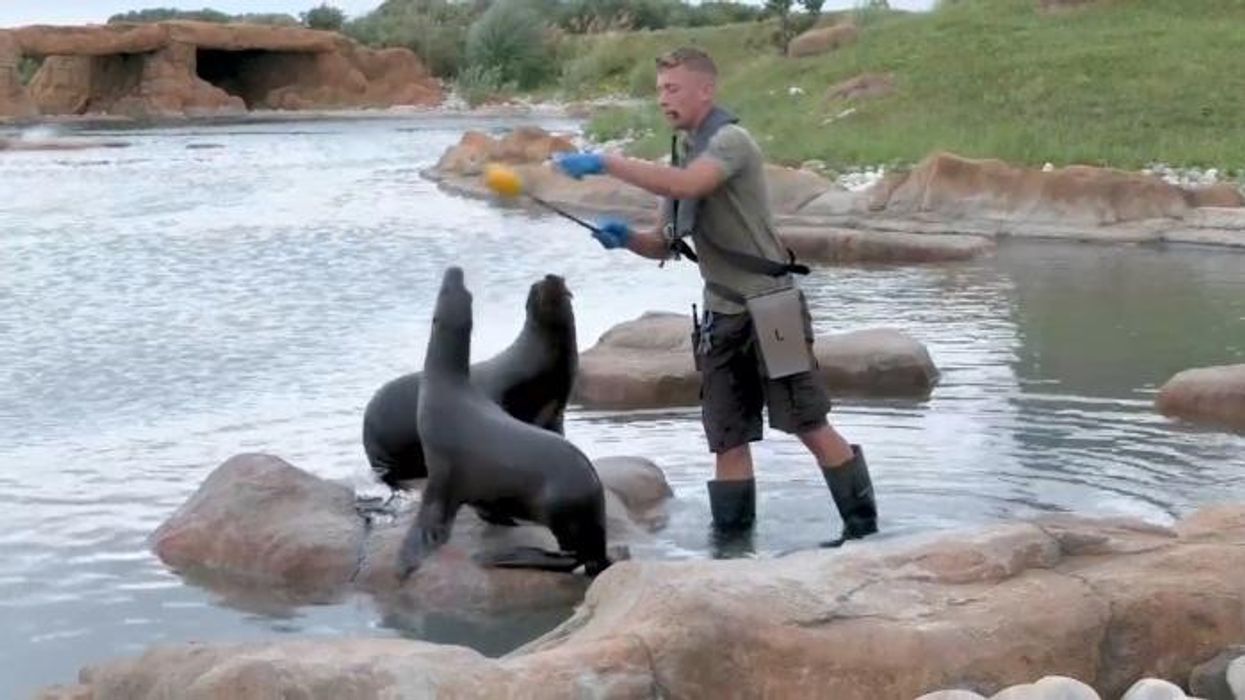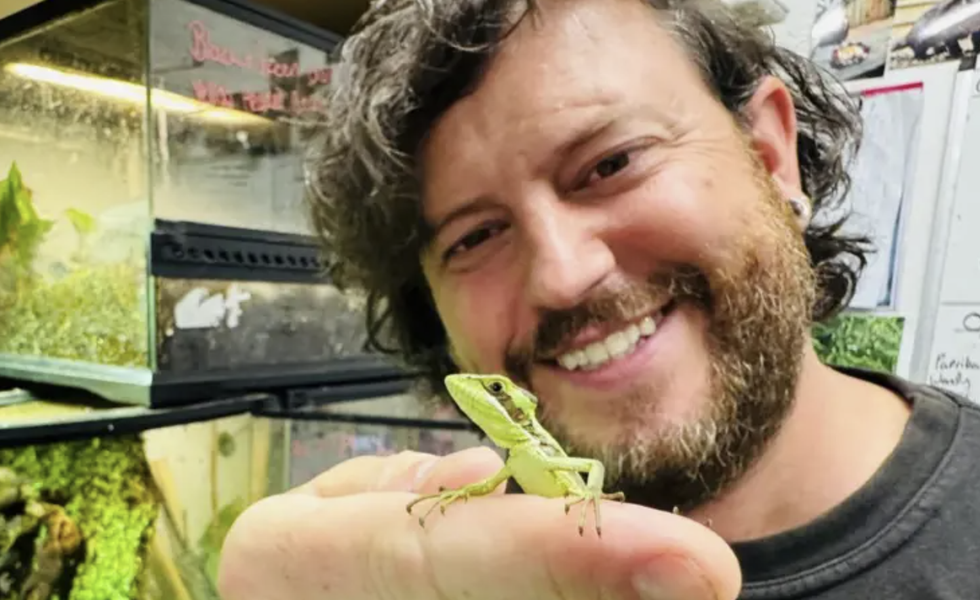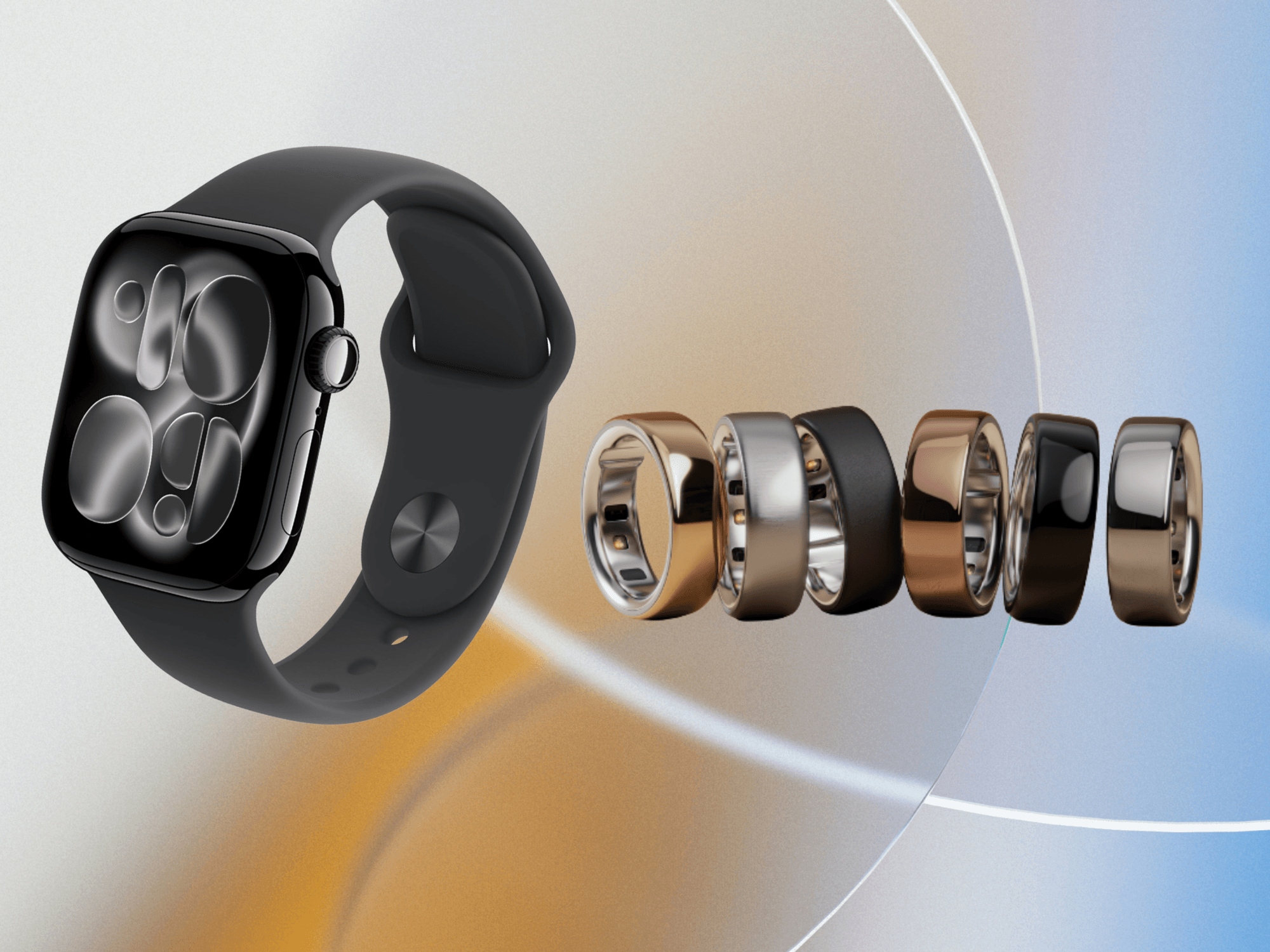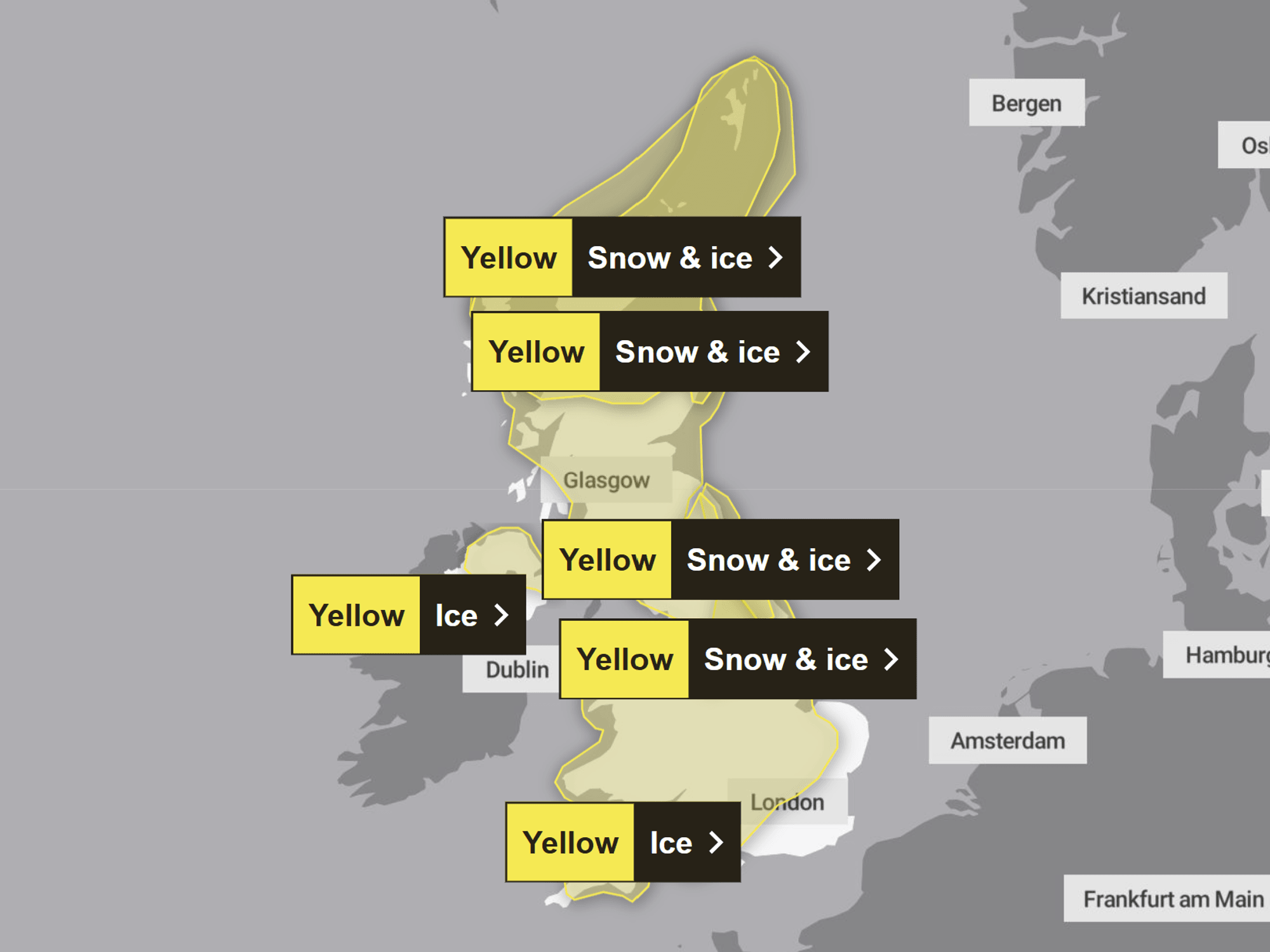Zookeepers left stunned after iguana's 'virgin birth' - 'One of the rarest events in the animal kingdom'

New 'long overdue' welfare reforms for animals enforced at British zoos |
GB NEWS

Workers at the zoo in Telford said 'our jaws hit the floor'
Don't Miss
Most Read
Trending on GB News
An extraordinary reproductive phenomenon has occurred at a zoo in Telford, where a female casque-headed iguana produced offspring despite never encountering a male partner.
The remarkable event at Telford's Exotic Zoo involved the birth of eight healthy hatchlings through parthenogenesis, a natural process enabling unfertilised eggs to develop into embryos.
This rare occurrence, which took place during the final week of August, represents one of the most unusual reproductive events documented in the animal kingdom.
The phenomenon allows females to produce offspring that are genetically identical to themselves, essentially creating clones without any paternal contribution.
Zoo staff discovered the unexpected development when their long-term resident iguana laid eggs despite her solitary housing arrangement.
Scott Adams, the zoo's director, expressed his astonishment at the discovery. "When we confirmed the eggs were fertile without any contact with a male, our jaws hit the floor," he stated.
The team initially placed the eggs in an incubator after finding them, observing they remained white and appeared healthy throughout the incubation period.
Two months later, the facility welcomed eight female hatchlings, all genetic duplicates of their mother.

The iguana's birth shocked the team at the zoo
|TELFORD EXOTIC ZOO
"These babies are essentially mini-mum clones, and seeing them thrive is incredible," Adams remarked.
He called the births as "one of the rarest events in the animal kingdom."
The successful hatching demonstrated what Adams called nature's capacity for "self-conservation" in unexpected circumstances.
Parthenogenesis remains an exceptionally uncommon reproductive strategy, documented in merely a small number of reptile species globally.
The process enables female animals to reproduce without male fertilisation, with offspring emerging as exact genetic replicas of their mothers.
Similar instances have been recorded in other species, including an epaulette shark at Illinois's Brookfield Zoo in 2023 and a stingray that reproduced asexually last year.
Mr Adams noted that staff first became aware something unusual was occurring when they observed the iguana's increasing size.
"For us, it's a powerful reminder that life finds a way in the most unexpected circumstances," the zoo director explained.
The hatchlings currently reside in the zoo's temperature and humidity-controlled reptile nursery, receiving continuous care from staff.
The facility anticipates introducing the young iguanas to public viewing within several weeks, though two juveniles will transfer to another zoo.
Adams highlighted the educational value of this occurrence: "This story gives us an amazing opportunity to talk with our visitors about genetics, evolution, and the challenges that reptiles face in the wild."
Casque-headed iguanas, indigenous to Central and South America, confront significant threats including habitat destruction and illegal capture for the pet trade.
"It's not just exciting, it's important for science and conservation education too," Adams added.
Back in January, a baby swell shark, Yoko, was born in Shreveport Aquarium in Louisiana, although the two females in the tank "had not been in contact with a male in over three years."
Yoko's birth could be the result of either parthenogenesis or delayed fertilisation – females of many shark species can store sperm inside themselves for months or even years.
More From GB News










